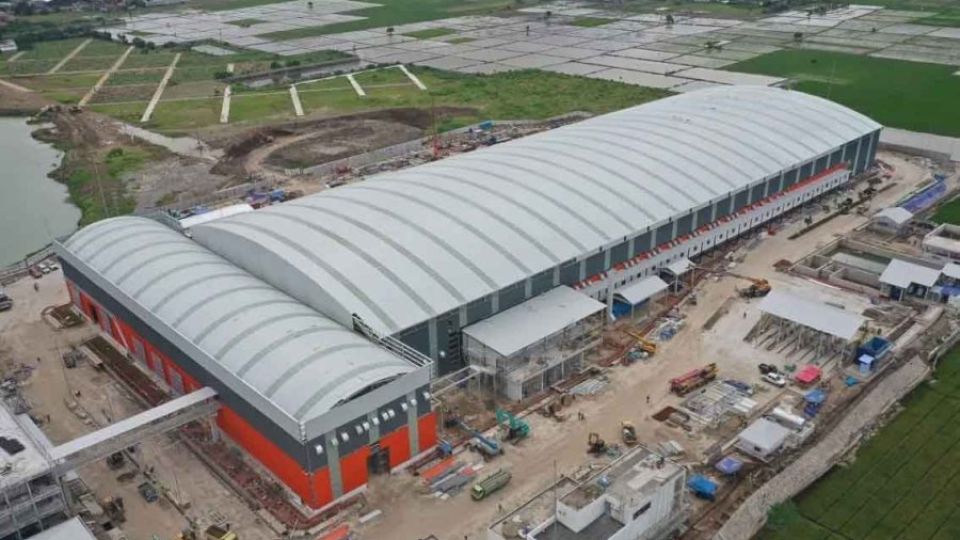February 18, 2025
JAKARTA – Thick, foul-smelling smoke reportedly rose from a newly built refuse-derived fuel (RDF) plant in Rorotan, West Jakarta, last week during a test run of the facility, which is slated to process thousands of tonnes of waste every day when it begins full operations.
State-owned construction firm PT Wijaya Karya (WIKA), which developed and built the plant, apologized for the issue.
“We will take preventive action to ensure it won’t happen again,” said the RDF’s project manager, Angga Bagus, in a statement on Wednesday, citing a technical error during equipment trials in early February as the cause of odor.
Angga said the factory’s odor-control system had not been operating optimally at the time.
“If the set-up process is completed, it will work well […]. We will ensure all odor-controlling technologies will work optimally so that the Jakarta RDF facility can operate without having a negative impact on the surrounding community,” he said.
A man who works near the waste processing facility who asked to remain anonymous told The Jakarta Post on Saturday, “The air smelled so bad a few days ago. Now it’s normal again.”
He added that he hoped no more technical issues would occur that caused problems for people living and working nearby.
Set to be fully operational by mid-March, the plant, built on a 7.8-hectare site, is part of Jakarta’s efforts to address its ever-growing waste problem. It is set to process about one third of the city’s 8,000 tonnes of daily waste production, the majority of which is currently dumped into the Bantar Gebang landfill in neighboring Bekasi.
In 2023, the Jakarta administration opened its first RDF facility at the Bantar Gebang landfill. It is able to process around 2,000 tonnes of waste daily.
The plant works by separating, shredding and processing waste into small pellets to be used as an alternative fuel in cement or coal-fired power plants.
The Rorotan RDF plant, which cost some Rp 1.2 trillion (US$73.97 million) to build, will be able to turn 35 to 40 percent of the waste processed into alternative fuel, which means that the facility can produce around 875 tonnes of alternative fuel daily at full capacity.
But the innovation comes with warnings from environmental groups, including the Indonesian Forum for the Environment (Walhi), noting its potential harm to the environment.
Muhammad Aminullah of the Jakarta branch of Walhi told the Post previously that the mixed plastic waste in the pellets could generate highly toxic dioxins and furan gases when burned as an alternative fuel.
“Air pollution. That’s what will always be a concern,” Muhammad said.
Yogi Ikhwan of the Jakarta Environment Agency confirmed on Sunday that cement companies would act as off-takers of the RDF product in Rorotan. The firms, including two listed companies PT Indocement Tunggal Prakarsa and PT Solusi Bangun Indonesia, could potentially generate billions of rupiah in revenue from the product. (gmb)


